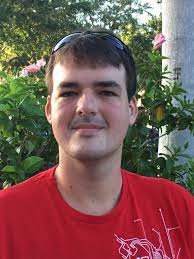
Research Highlights
Research Interests
I am passionate about understanding the dynamics of climate change and the implications for the ocean/coastal ecosystems.
Patrick Mears
Research Associate, Ocean Chemistry and Ecosystems Division
305.361.4519
4301 Rickenbacker Causeway
Miami, Florida 33149
Patrick Mears joined AOML’s Ocean Chemistry and Ecosystems Division as a University of Miami-Cooperative Institute research associate. Patrick works with the Ocean Chemistry and Ecosystems Division’s Ocean Carbon Cycle group. He has been working on ocean chemistry measurements and the collection of quality climate data for the following national and international programs: NOAA’s Ocean Acidification program, NOAA’s Northeast Fisheries Science Center Ecosystem Monitoring program for the Northeast U.S. continental shelf (EcoMon), the Ship of Opportunity CO2 (SOOP-CO2) program, and the Global Ocean Ship-based Hydrographic Investigation Program (GO-SHIP) ensuring that the data collected is properly quality controlled and uploaded.
Current Work
Research Associate for the Ocean Chemistry and Ecosystem Division’s Ocean Carbon Cycle Group
2006 – 2011, B.S. Marine and Freshwater Biology, University of Texas at Austin
2014 – 2016, Coursework earned toward Master of Science in Coastal Wetland and Marines Systems Science (3.5 GPA), Coastal Carolina University, Conway, South Carolina
- Wanninkhof, R., D. Pierrot, K. Sullivan, P. Mears, and L. Barbero. Comparison of discrete and underway CO2 measurements: Inferences on the temperature dependence of the fugacity of CO2 in seawater. Marine Chemistry, 247:104178, https://doi.org/10.1016/j.marchem.2022.104178 2022
Ref. 4185
Department of Commerce Bronze Medal 2022
For turning the canceled GO-SHIP A13.5 cruise into a new mission that maximized autonomous instrument deployments and surface water data collection.
NOAA Employee/Team Member of the Week Award 2020
For COVID-19 Response from National Oceanic and Atmospheric Administration for collecting basinwide, underway samples and measurements, as well as deploying floats and drifters, across the Atlantic after being ordered to return immediately to the United States. Her creativity and perseverance resulted in a cross-basin, multi-disciplinary set of samples, supporting critical NOAA research and the deployment of long-term observing platforms that will provide data for years to come.